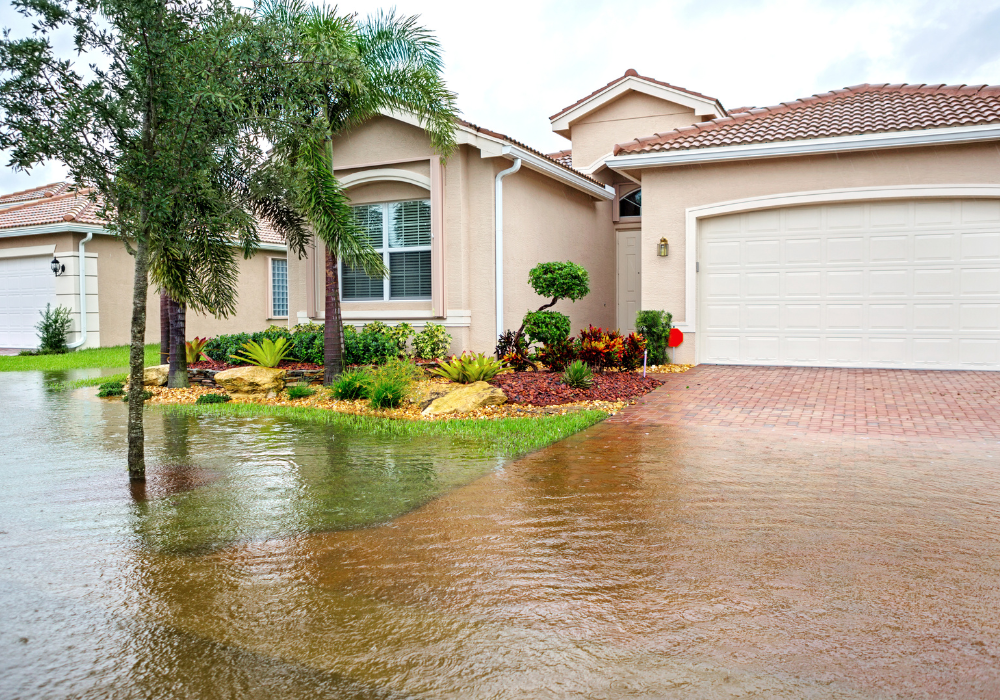Rising climate costs, extreme weather, and economic uncertainty are forcing young adults to abandon traditional financial planning.

Financial advisors are noticing something different about their millennial clients—many are questioning whether traditional retirement planning makes sense in a world facing climate change.
While previous generations focused on maximizing 401(k) contributions and buying homes, today’s young adults are grappling with questions their parents never had to consider: Will my coastal property be underwater in 30 years? Should I invest in companies that contribute to climate problems? How do I plan for retirement when I’m not sure what the world will look like?
This shift in thinking is leading to new approaches to financial planning that factor in environmental concerns alongside traditional investment goals.
1. Climate Anxiety Is Changing the Way Millennials Save

Environmental concerns are influencing how young adults approach basic financial decisions, from emergency fund sizes to savings account priorities. Some millennials are keeping larger cash reserves than traditional financial advice recommends, reasoning that liquid funds provide more flexibility to adapt to climate-related emergencies or relocations.
Others are prioritizing immediate climate adaptation expenses—like energy-efficient appliances, solar panels, or flood insurance—over traditional retirement contributions. Financial planners report seeing clients who want to balance preparation for climate impacts with long-term wealth building, leading to more complex conversations about risk tolerance and time horizons than previous generations required.
2. Why Some Young Adults Are Questioning Long-Term Financial Plans

The uncertainty surrounding climate change’s long-term impacts is making millennials skeptical about 30-year financial plans that assume economic and social stability. Young adults who have witnessed repeated “once-in-a-century” weather events and economic disruptions are questioning whether historical financial models will apply to their futures.
They express concerns about locking money away in retirement accounts when they might need funds for climate adaptation, career changes, or family emergencies related to extreme weather. This skepticism doesn’t necessarily mean abandoning financial planning entirely, but rather demanding more flexibility and shorter-term goals than traditional retirement advice typically recommends.
3. From 401(k)s to ESG Funds: A Shift in Investment Priorities

Environmental, Social, and Governance (ESG) investing has gained significant traction among younger investors who want their money to align with their climate concerns. Many millennials are choosing ESG funds for their retirement accounts, even when these options have higher fees or different risk profiles than traditional index funds.
Millennials are avoiding investments in fossil fuel companies entirely, while others seek out funds focused on renewable energy, sustainable agriculture, or climate adaptation technologies. This values-based approach to investing represents a departure from the “maximize returns at any cost” mentality that dominated previous generations’ retirement planning strategies.
4. Homeownership Hesitation in Climate-Vulnerable Regions

Climate considerations are influencing major life decisions like where to live and whether to buy property, which traditionally formed the foundation of retirement planning. Millennials are hesitant to purchase homes in areas vulnerable to sea-level rise, wildfire, or extreme weather, even when these locations offer more affordable housing options.
Others are researching climate projections before making real estate decisions, considering factors like future insurability, property values, and habitability. This climate-conscious approach to housing can mean higher current costs for climate-safer locations, affecting how much money is available for traditional retirement savings.
5. The Rise of “Climate-Resilient” Retirement Planning

A new approach to retirement planning is emerging that incorporates climate risks into financial strategies, rather than treating environmental concerns as separate from financial goals. This might involve geographic diversification of assets, investing in climate adaptation infrastructure, or planning for potentially higher costs of basic necessities like food, energy, and housing.
Financial advisors are beginning to offer “climate-resilient” portfolio options that consider both financial returns and climate risks. These strategies often emphasize flexibility, diversification across different types of assets, and shorter planning horizons that can be adjusted as climate impacts become clearer.
6. How Extreme Weather Shapes Life and Career Decisions

Recent extreme weather events are influencing millennials’ career choices and financial priorities in ways that affect their retirement planning. Young adults are gravitating toward jobs in renewable energy, climate adaptation, or other sectors they believe will grow as climate challenges increase.
Others are prioritizing remote work capabilities that allow them to relocate if climate conditions change in their area. These career considerations can affect earning potential, employer benefits, and long-term financial planning in ways that traditional retirement advice doesn’t address.
7. Balancing Present-Day Costs With Future Security

Millennials face the challenge of balancing immediate climate-related expenses with long-term financial security, creating tension between present needs and future planning. Higher costs for climate-safe housing, sustainable products, and climate adaptation measures can reduce the amount available for retirement savings.
They are choosing to spend on solar panels, electric vehicles, or energy-efficient home improvements, viewing these as investments that provide immediate benefits while potentially reducing future costs. This approach requires rethinking traditional advice about prioritizing retirement contributions over other financial goals.
8. The Pull of Values-Based and Sustainable Investing

Beyond ESG funds, millennials are exploring alternative investment approaches that align with their environmental values, from community solar projects to sustainable agriculture ventures. Impact investing, which seeks both financial returns and positive environmental or social outcomes, is attracting young investors who want their money to contribute to climate solutions.
While these investments may carry different risk profiles than traditional retirement accounts, they appeal to millennials who want their financial planning to reflect their values and potentially benefit from the transition to a low-carbon economy.
9. Navigating Financial Futures in an Uncertain World

The combination of climate uncertainty, economic volatility, and changing career landscapes is leading this generation to prioritize flexibility over traditional long-term commitments in their financial planning. This might mean keeping more money in accessible accounts, developing multiple income streams, or building skills that could be valuable in different economic scenarios.
This approach may sacrifice some potential long-term gains from compound interest, but it provides adaptability that appeals to a generation facing unprecedented environmental and economic challenges.
10. Expert Tips for Climate-Conscious Retirement Strategies

Financial advisors working with climate-conscious millennials suggest strategies that balance environmental concerns with sound financial planning principles. These include diversifying investments across different sectors and geographic regions, considering both traditional and ESG investment options, and building flexibility into long-term plans that can be adjusted as climate impacts become clearer.
Experts also recommend maintaining emergency funds that account for potential climate-related expenses, researching climate risks when making major financial decisions, and staying informed about how climate change might affect different investment sectors. The key is finding approaches that address climate concerns without abandoning fundamental principles of long-term wealth building.
